Safety
WEBSITE UNDER CONSTRUCTION (Jan 31, 2022):
This is our old website. As iGEM enters its 20th year, we are transitioning from our old Mediawiki infrastructure to new modern software. We expect to complete the migration to our new websites in March 2022:
iGEM (igem.org) ; Competition (competition.igem.org) ; Projects (projects.igem.org) ; Community (community.igem.org) ; Technology (technology.igem.org) ; Responsibility (responsibility.igem.org) ; Startups (startups.igem.org) ; Leagues (leagues.igem.org) ; Jamboree (jamboree.igem.org)
Safety and Security at iGEM
iGEM is unique in our comprehensive and thorough approach to synthetic biology. With our world class safety and security program, we lead the field by fostering an environment of mindful and responsible work.
Safety and security are not only key facets of iGEM, but important factors which every team must carefully consider in the scope of their work. Through grappling with the difficult biosecurity and biosafety questions that are raised by synthetic biology in general, or by their project in particular, iGEM is cultivating a workforce that is mindful of their work and potential uses of their product, regardless of intent.
iGEM is an Innovator for Safety and Security
As an interdisciplinary, international program, projects in the iGEM Competition often involve the cutting edge of advanced biotechnology. iGEM needs to ensure projects are safe and secure - often in advance of regulations of guidance from governments or other groups.
We have invested heavily in identifying potential safety and security issues and in building procedures and practices that are context-specific, responsive, flexible and principle-based.
iGEM works closely with biosafety and biosecurity professionals as well as regulators to ensure that our approaches are the best available for managing and mitigating any risks. To this end, the iGEM Competition is a unique sandbox for testing and improving such procedures and practices. We are passionate about working with our partners to safeguard synthetic biology.
A message from Piers Millett, iGEM Vice President of Safety and Security.
Excellence in Safety and Security
iGEM is cultivating a workforce that is mindful of their work and potential uses of their product, regardless of intent. Teams that accomplish something special on safety and security during the iGEM Competition are recognized with a special commendation by the Safety Committee to reward excellence. Past recipients have included:
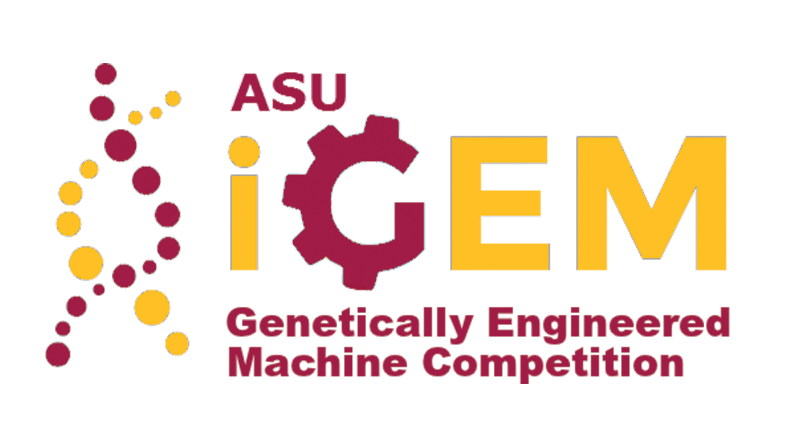
2016 Arizona State
For a White Paper on context specific risk assessment where they considered how risks associated with parts in their project might change if they were to come into contact with different organisms.
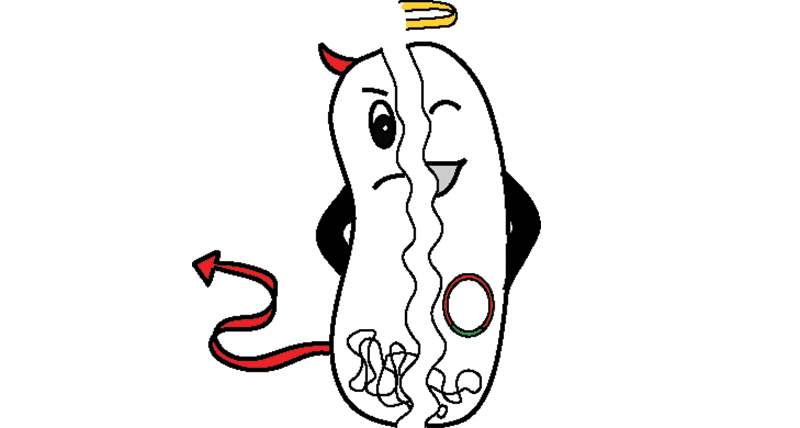
2015 Bielefeld-CeBiTec
For a report on the dual-use nature of advanced biotechnology – where its impact on society is determined by the intent of the user. This report was felt to be an excellent review of this issue - and an important resource for future iGEM teams.
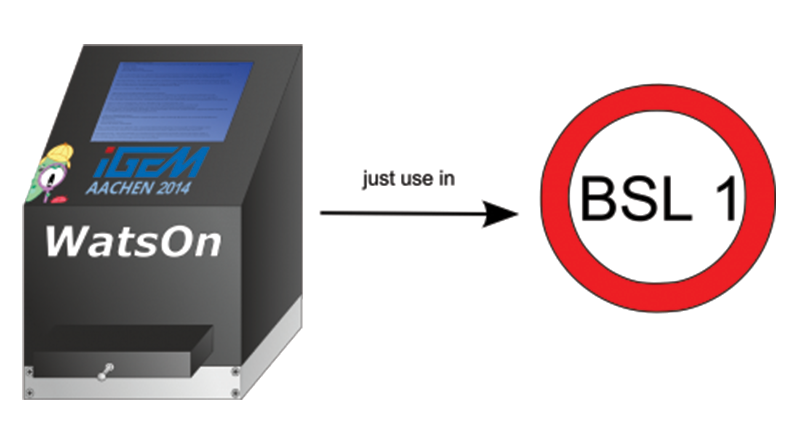
2014 Aachen
For integrating safety considerations into the design and production of their project. This team undertook a series of experiments to determine whether safety-based decisions taken in project design actually resulted in the desired improvements.
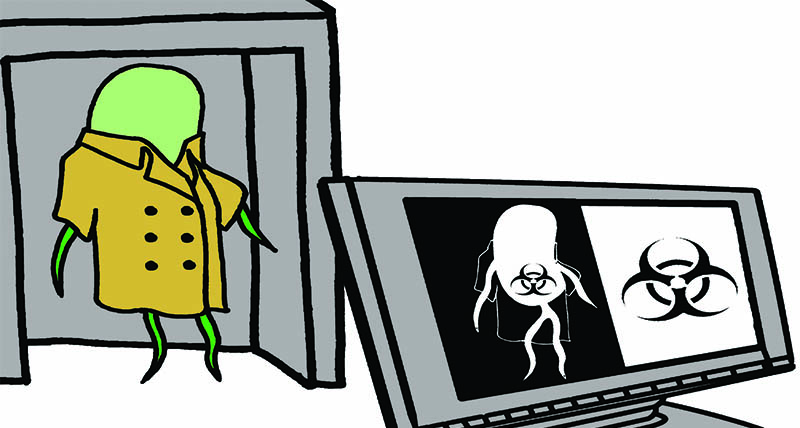
2013 Lethbridge
For working with the gene synthesis industry to test whether their screening techniques could detect illicit orders that had undergone a frame shift. Their security work was directly connected to their main project. This was an excellent example of responsible whitehat biohacking.
How Does it Work?
Striking a Balance
It is important that safety efforts keep everyone safe but do not unduly restrict what can be achieved.
As a result, iGEM has implemented a graduated safety system:
- Some activities are absolutely prohibited, such as environmental release, use of dangerous pathogens, or human experimentation.
- Other activities are subjected to high levels of scrutiny, such as the use of animals, parts from exotic organisms, or certain types of anti-microbial resistance.
- Most projects only involve standard lab organisms and parts known to be safe, as defined on our White List of common parts and organisms, and have a proportionate level of oversight.
Each of these gradations are defined through our Safety Rules, Safety Policies, and the White List, which are reviewed and published annually on the competition website.
Sharing the Responsibility
iGEM believes that safety and security is everyone's responsibility. All participants are responsible for working safely in the laboratory, and for ensuring that the project complies with local laws and university/institutional guidelines.
To assist teams in their efforts, iGEM annually maintains a Safety Hub on that year's Competition website. This Safety Hub exists to provide information, such as the competition’s lab safety rules, roles and responsibilities, and policies on specific issues. The Safety Hub also provides guidance, for example information on different risk groups, as well as ways to get advice, including through the Safety and Security Committee. It also provides access to safety tools used in iGEM, including Safety Forms and the White List.
Multi-Layered Safety Procedures
Teams must follow all relevant local, national or regional rules on safety and security. On top of this, iGEM takes extra steps to identify and manage risks associated with engineering biology. All projects are screened for potential safety and security issues throughout the entire competition cycle with the assistance of custom-built forms that ALL competition teams must fill:
- Teams submit initial project plans and lab arrangements for review at the start of the season. This is done through the Team Safety Form.
- Every time a team plans to use a part or organism not on the competition’s White List, they must submit additional information for review and approval before commencing work. Information is recorded through specialized forms including the Animal Use Form and Check-In Form.
- Towards the end of the competition, the team’s supervisor reviews all the information provided on the Team Safety Form and signs off that they have worked in accordance with relevant rules and regulations.
- The parts held in iGEM’s Registry are also screened for potential safety and security issues by a commercial partner.
Any problems identified in these screens are passed on to our Safety and Security Committee. The membership of this committee includes current and past government experts, regulators, academic and industry experts in synthetic biology, as well as environmental biosafety, lab biosafety, biosecurity and science policy specialists.
Learning From the Experience
Competitors learn a wide range of skills that will be important in their later careers. That includes being able to assess any risks associated with their work, interacting with institutional biosafety committees, and meeting regulatory requirements. iGEM works hard to provide teams with the resources they need to excel in safety and security. We also recognize excellence through a Safety and Security Commendation at the Giant Jamboree.
iGEM takes safety and security very seriously
Failure to comply with the lab safety rules, breaching safety policies, or failing to provide safety-related information all rapidly lead to disqualification from the Competition.
A Continually Evolving Program
Strengthening Safety and Security Practices
iGEM is working hard to improve both the safety and security practices we use, and how we make that information available to the wider community.
Before each competition season, Safety Forms, the White List, Safety Rules, and Safety Policies for the competition are all thoroughly reviewed and updated to reflect the most current understandings of risk. iGEM clarifies our position annually on activities identified as risky that might be attempted by teams. Examples include gene drives, animal use, human experimentation, anti-microbial resistance. See the policies from 2017, 2018, and 2019.
iGEM is also building new tools to help teams work safely and securely. For example, VP of Safety and Security, Piers Millett, is working with the Safety Committee to develop a risk assessment tool to help teams identify potential risks associated with their project. Since iGEM is a unique space to test new tools, we are exploring ways in which we might work with the broader community to benchmark or improve safety and security tools better suited for engineering biology.
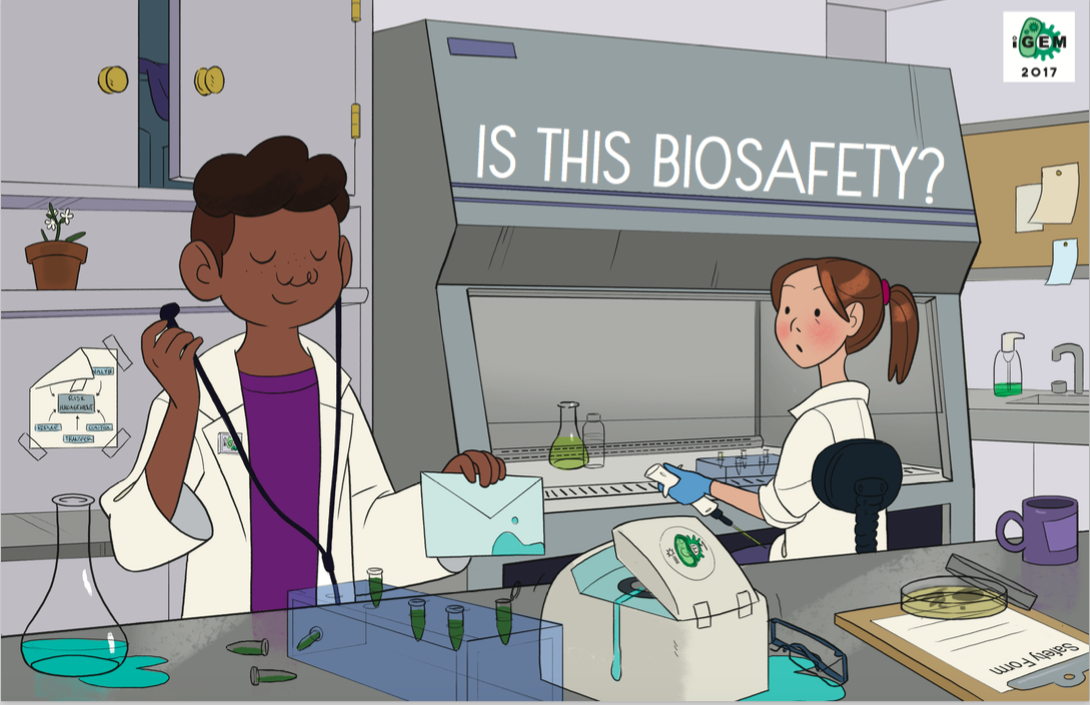
A biosafety awareness activity distributed during the 2017 iGEM Competition.
Shaping the Safety and Security Landscape
The lessons learned through iGEM are potentially useful to the broader community setting safety and security policy throughout the world. To ensure our experiences are shared, iGEM is increasingly active in many different processes. Past efforts include:
- NATO workshop: "Security and Resilience for Emerging Synthetic Biology and Biotechnology Threats", July 2019
- Centre for the Study of Existential Risk (CSER) Workshop on Novel Practices of Biosecurity Governance, July 2019
- Nuclear Threat Initiative - working meeting on Biosecurity Innovation and Risk Reduction, April 2019
Learn more about iGEM's work beyond the competition.
In addition to those events above, the After iGEM Delegate Program gives iGEM students the opportunity to attend key international meetings and be part of the conversations themselves. Events attended with the After iGEM Delegate Program include:
- The 2017 Meeting of States Parties of the Biological Weapons Convention
Learn more about the After iGEM Delegate Program.
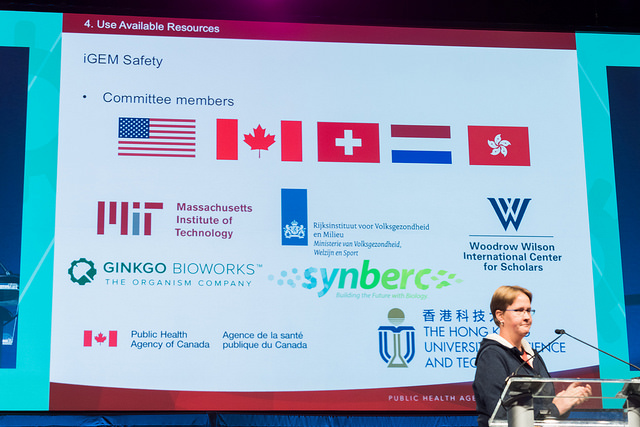
We welcome your ideas on where we should be talking about iGEM’s safety and security program. Feel free to contact us at safety AT igem DOT org.
A Testbed for Novel Approaches
The iGEM Competition is a unique sandbox for testing and improving risk management and mitigation practices.
Biosecurity lessons from iGEM: The synthetic-biology challenges for biosecurity: examples from iGEM, The Nonproliferation Review, August 2021
The origins of the Safety and Security Program: Designing Safety Policies to Meet Evolving Needs: iGEM as a Testbed for Proactive and Adaptive Risk Management, ACS Synthetic Biology, December 2014
Taking care in synthetic biology, in Balmer & Rappert (Eds). Absence in Science, Security and Policy: From Research Agendas to Global Strategy, 2015
Biosafety Considerations of Synthetic Biology in the iGEM Competition, BioScience, January 2013
The safety and security program in practice: Engineering a biological revolution, Cell, January 2017
Efforts to strengthen safety and security at iGEM: ASU associate director continues to make waves in biosafety field, 2017
Biosecurity and iGEM: Why Is The FBI Reaching Out To Student Bioengineers? Motherboard, 2016
Integrating safety and security into iGEM projects: Safety in iGEM, NTU-Taida, 2012
iGEM Safety Commmittee
The iGEM Safety Committee is a group of experts in biosafety, biosecurity, and risk management. Its members come from diverse elements of industry, academia, and government. The committee helps create iGEM’s safety program and gives expert advice on potential safety and security issues in the competition. Click here to view the 2020 iGEM Competition Safety & Security Hub.
Our thanks to Open Philanthropy
iGEM’s work on safety and security has been supported by a grant by Open Philanthropy. This vital contribution has allowed us to scale up both efforts to strengthen our procedures and practices and how we share the lessons we learn with the wider community.

- Open Philanthropy
Open Philanthropy identifies outstanding giving opportunities, makes grants, follows the results, and publishes its findings. Its mission is to give as effectively as it can and share the findings openly so that anyone can build on them. Thank you to Open Philanthropy for supporting iGEM's Safety & Security Program.


